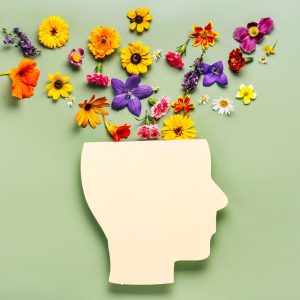Introduction
 The clotting community is all too familiar with the mental health impacts associated with a blood clot diagnosis. For some, these mental health issues encompass physical and emotional recovery when facing life’s daily routines following a life-threatening medical experience. For others who have lost loved ones, the mental health impact can be profound, as family members and close friends must move forward in life without a cherished loved one who was such a large or central part of their life.
The clotting community is all too familiar with the mental health impacts associated with a blood clot diagnosis. For some, these mental health issues encompass physical and emotional recovery when facing life’s daily routines following a life-threatening medical experience. For others who have lost loved ones, the mental health impact can be profound, as family members and close friends must move forward in life without a cherished loved one who was such a large or central part of their life.
Mental health has always been a pressing issue in the clotting community, but only in recent years has the impact of anxiety and depression following a blood clot diagnosis received much attention.
The Blood Clot Recovery Network (BCRN), however, has shared information and resources about mental health issues connected to blood clots and clotting disorders for many years. BCRN’s founder Sara Wyen, herself a blood clot survivor, has shared her personal journey with anxiety and depression following her traumatic blood clot experience, and she has created and compiled her own suite of resources on the topic over the past decade. Sara shares her insights and resources on the topic of mental health below.
Blood Clots and Mental Health

Guest Author, Sara Wyan, Founder, Blood Clot Recovery Network
For people who have experienced a life-threatening blood clot, the focus usually lies with treating and managing the physical aspects of recovery. From monitoring breathing and heart rate to getting back to normal activity to managing an anticoagulant or blood thinner, there can be a lot to consider when it comes to physical recovery from blood clots. Yet, like any chronic or sudden illness, healing from blood clots is complex and often extends far beyond the physical aspects of healing.
It is not uncommon for people with blood clots to face issues with mental health, including depression, anxiety, and post-traumatic stress disorder (PTSD). In fact, one study published in January 2021, in the journal of Research and Practice in Thrombosis and Haemostasis, found that about half of the individuals interviewed in their study experienced ongoing psychological distress related to a pulmonary embolism (PE), or a blood clot in the lung, and three percent were diagnosed with PTSD.
Tips to Address Common Mental Health Challenges
Blood clots can be life-changing, and it can feel especially overwhelming to consider your mental health when you already aren’t feeling well physically. However, your mental health should be a top priority too. Here are some important tips I routinely share for dealing with depression and anxiety after a blood clot diagnosis:
- Remember you are not alone. It is estimated that about 900,000 people in the United States develop blood clots each year, and there are numerous options available for peer support within our community. Seek out peer support and connect with a community of people who understand what you are going through.
- Write it down.Writing is a great way to acknowledge and process what you are going through. Keep a journal about how you are feeling, not only physically but emotionally too. You can also share this information with your doctor or medical team, or share questions or concerns you want to raise with them. You also might consider sharing your story not only to give voice to your own experiences, but to help other people realize that they are not alone.
- Talk with your doctor. If you’re unsure about what to do when you’re not feeling your best, your healthcare provider is a good place to start. Talk to them about your questions or concerns and ask them to help refer you to available resources and services.
Read more tips for dealing with depression and to help you deal with the emotional effects of blood clots.
One Day at a Time
In addition to feeling depressed, anxious or scared, people who have experienced a blood clot may also face feelings of loss and grief. You may feel that you have lost your self-confidence or independence if you are unable to do the things you used to be able to do, such as clean the house, cook dinner, work a full day, care for your family or pets, or exercise.
While most people heal fully from blood clots and are eventually able to resume regular activities, it takes time to feel better. It can help to keep this perspective in mind as you gradually ease back into your previous activities one day at a time. Just like physical health, it takes time to heal emotionally too, so be patient with yourself as you process your emotions.
Navigating Grief in the Aftermath of Losing a Loved One
 Tragically, each year as many as 100,000 people in this country lose their life due to blood clots, and if one of those individuals is your loved one the numbers are meaningless and the degree of emotional pain you are dealing with can be immeasurable or impossible to define.
Tragically, each year as many as 100,000 people in this country lose their life due to blood clots, and if one of those individuals is your loved one the numbers are meaningless and the degree of emotional pain you are dealing with can be immeasurable or impossible to define.
If you have lost someone you loved to a blood clot and you struggle with grief, depression, sadness, or anger, these feelings can be overwhelming and, at times, crippling or all-consuming. It’s important to give yourself grace and allow time to heal from this traumatic experience, accepting the support and help of other family and friends.
The journey that follows the loss of a loved one is difficult, as close relationships are at the core of our lives and life experiences. When these relationships are severed, especially if a loved one passed away suddenly or unexpectedly, the grief can be overwhelming.
There are assorted methods of grief counseling and grief therapy available, and frequently the main objectives of such mental healthcare involve helping family members accept the reality of their loss, process their feelings of grief, adapt to life without their loved one, and find a way to feel that they remain connected to the individual they lost in a meaningful way and a way that allows them to move forward in their new life without them.
If you have lost a loved one to a blood clot, we encourage you to seek support and the resources that might help you in this difficult journey, and we encourage you to connect with others in the community who have experiences similar to yours. The Rowan Foundation can help connect families who have suffered the loss of loved ones due to blood clots and you can contact them in this regard here: [email protected].
Mental health is central to navigating either your grief or recovery journey. The groups and resources identified below can provide additional professional information and support. If you need urgent mental health support, you can contact the 988 Suicide and Crisis Lifeline for 24/7 assistance every day of the year.
Additional Mental Health and Grief Resources:
- Mental Health America (MHA): A database of U.S.-based mental health specialists
- Substance Abuse and Mental Health Services Administration (SAMHSA): 24-hour assistance for Americans who need mental healthcare
- Black Mental Health Alliance (BMHA): Focused on connecting Black Americans with culturally conscious mental healthcare, including referrals to Black, Indigenous, and People of Color therapists throughout the U.S.
- Grief In Common: An online portal with many free features that connects people with support groups, professional services, and resources following the loss of a loved one
- The Center for Prolonged Grief: A service of the Columbia University School of Social Work that shares a search tool to help locate certified grief counselors in your local community
- My Grief Angels: A broad-based resource for individuals experiencing a diverse spectrum of loss and grief experiences with many free resources
For more information about blood clots, click here.
To learn more about women’s health and clotting, click here.
